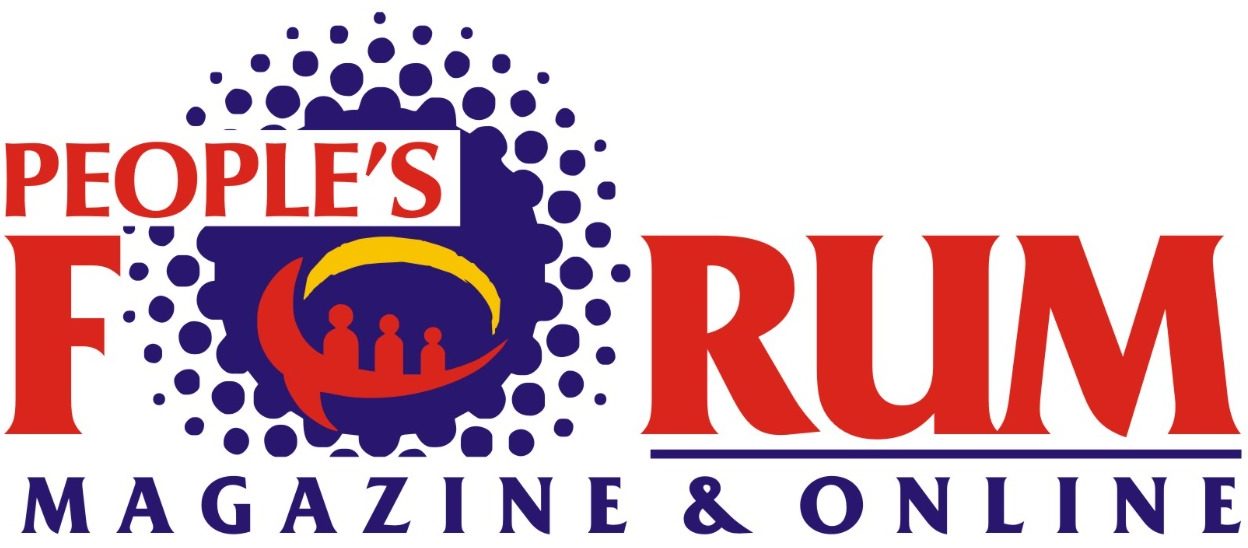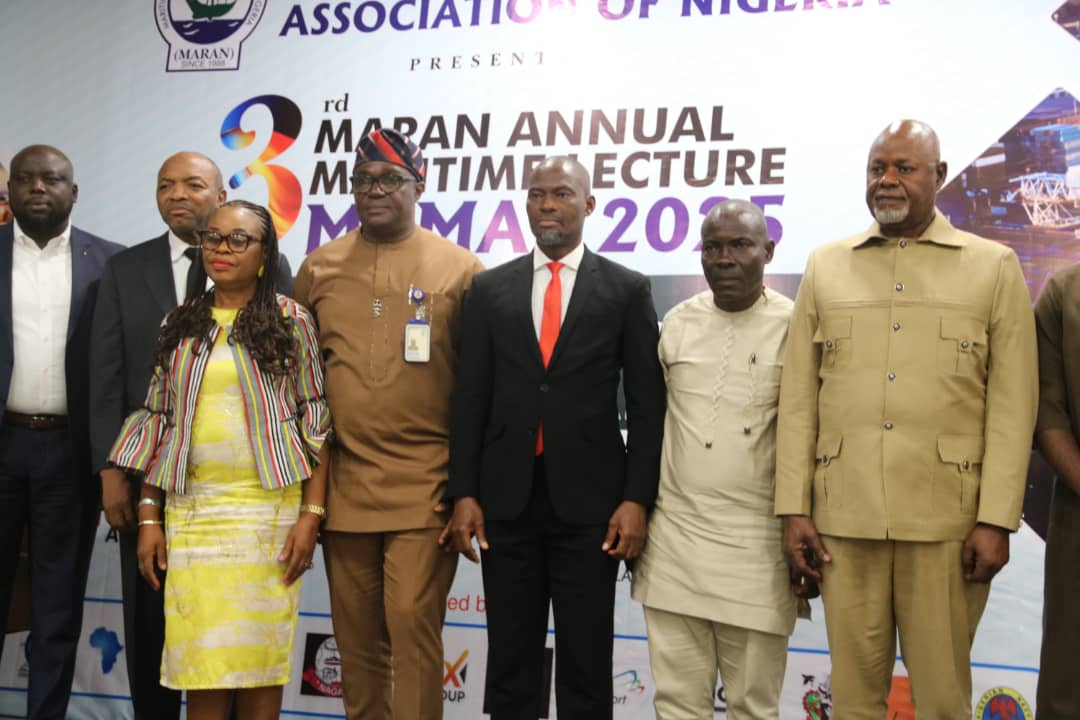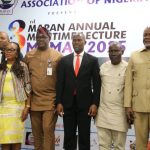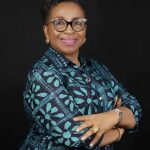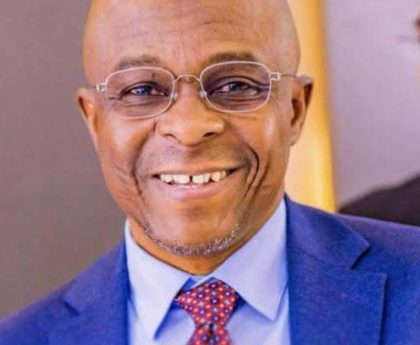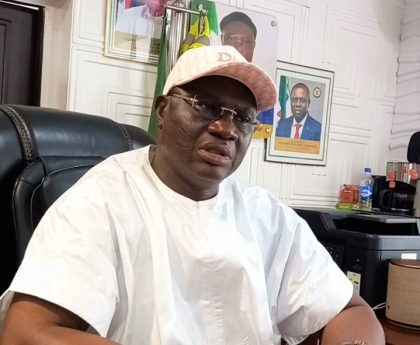The Nigerian Shippers’ Council (NSC) has renewed its commitment to protecting the interests of Nigerian shippers by calling for a comprehensive review or outright removal of the war risk insurance surcharge imposed Nigerian waters.
Speaking at the third Annual Maritime Lecture organized by the Maritime Reporters Association of Nigeria (MARAN), themed “Addressing the Burden of War Risk Insurance on Nigeria’s Maritime Trade,” NSC Executive Secretary Dr. Pius Akutah, represented by Mrs. Margaret Ogbonna, Director of Regulatory Affairs, highlighted the Council’s position.
Dr. Akutah emphasized that Nigeria has made significant strides in maritime safety, thanks to:
– Strategic collaboration between NIMASA and the Nigerian Navy
– Deployment of the Deep Blue Project
– Enhanced maritime domain awareness and inter-agency cooperation
According to him, these efforts have drastically reduced piracy and armed robbery incidents, yet Nigeria remains unfairly classified as a high-risk shipping zone.
The continued imposition of war risk insurance premiums has led to:
– Increased costs for importers and exporters
– Inflation of goods prices
– Reduced competitiveness of Nigeria’s maritime trade
Dr. Akutah stressed that these surcharges are no longer justifiable and must be reassessed to reflect the current security reality.
He stated that NSC is actively engaging with:
– International underwriters, including Lloyd’s Market Association
– Local insurance stakeholders
– Regional and global platforms such as ECOWAS, the Gulf of Guinea Maritime Collaboration Forum, and the IMO.
The goal is to present data-driven evidence that supports Nigeria’s improved maritime security and advocates for fairer treatment.
The NSC reaffirmed its dedication to building a cost-efficient, secure, and competitive maritime sector that supports Nigeria’s economic growth. Dr. Akutah commended MARAN for its continued commitment to advancing the maritime industry and pledged the Council’s unwavering support for Nigerian shippers and port users.
Engineer Greg Ogbeifun, Chairman of the event, urged stakeholders to move beyond discussions and take concrete steps toward participating in the carriage of Nigeria’s imports and exports. He challenged MARAN to ensure measurable progress by the next annual lecture.
Also speaking at the occasion, former NIMASA Director General, Captain Temisan Omatseye, voiced strong concerns over the continued imposition of War Risk Insurance (WRI) premiums on vessels entering Nigerian waters. He criticized the Joint War Risk Committee in London for charging 0.25% on vessels approaching Lagos, with rates rising to 0.65% for ships heading toward Delta, Port Harcourt, or Bakassi—despite Nigeria’s improved maritime security. In contrast, countries like Pakistan, facing more severe threats, are charged only 0.25%.
Captain Omatseye attributed this disparity to Nigeria’s failure to effectively communicate its security progress to the global maritime community. With major refineries like Dangote, BUA, and upcoming modular facilities in Ogun State poised to make Nigeria a leading petroleum exporter, he stressed the urgency of resolving the WRI issue to support trade and economic growth.
Dr. Dayo Mobereola, Director General of NIMASA (represented by Mr. Victor Iloh), acknowledged the issue and highlighted Nigeria’s strategic location in the Gulf of Guinea, which historically exposed it to piracy and maritime crime. However, he emphasized that:
– No piracy incidents have been recorded in the past four years.
– The Deep Blue Project, launched in 2021, has significantly enhanced maritime security through coordinated land, sea, air, and intelligence operations.
– The SPROMO Act (2019) has led to successful pirate convictions.
– Nigeria was delisted from piracy-prone zones by the International Maritime Bureau (IMB) in 2021.
– In 2023, Nigeria was removed from the high-risk zone list by the IMB Forum.
Despite these milestones, Nigerian importers and exporters have paid over $5 billion in WRI premiums in just three years, placing a heavy burden on the economy.
Minister of Marine and Blue Economy, Chief Adegboyega Oyetola, through his representative Dr. Bolaji Akinola, outlined a three-pronged approach to eliminate WRI premiums:
1. Global Engagement
– Ongoing discussions with international insurers, underwriters, and organizations like Chatham House, IMO, and BIMCO to advocate for Nigeria’s improved security status.
2. Local Capacity Building
– Empowering Nigerian shipowners through single-digit financing via the Cabotage Vessel Financing Fund (CVFF).
– Plans to revive a National Carrier, this time private-sector led, to reduce dependence on foreign vessels.
3. Domestic Insurance Solutions
– Developing in-country insurance for Nigerian vessels to eliminate reliance on foreign insurers and reduce fraudulent WRI charges.
Dr. Dayo Mobereola, Director General, Nigerian Maritime Administration and Safety Agency (NIMASA) represented by the Deputy Director, Reformed Coordination Deep Blue Economy, Mr. Victor Iloh, emphasized that removing WRI premiums requires collective action. Stakeholders must adopt the Best Management Practices for Maritime Security (BMPS 2025) to better understand and mitigate threats, protect seafarers, and ensure safe maritime operations.
He commended MARAN for spotlighting this critical issue, noting that inflated shipping costs ultimately affect every Nigerian household.
Earlier, the President of the Maritime Reporters Association of Nigeria (MARAN), Mr. Godfrey Bivbere, called on industry experts to tackle the persistent issue of war risk insurance premiums. He emphasized that these surcharges are undermining Nigeria’s competitiveness, eroding cost efficiency, and discouraging investor confidence in the shipping sector.
The conference featured a robust panel discussion focused on strategies to reduce or eliminate the war risk insurance surcharge on vessels bound for Nigeria. It drew participation from key stakeholders, including representatives from NIMASA, international partners, and maritime professionals.
The Director General of NIMASA, Dr. Dayo Mobereola, highlighted ongoing diplomatic efforts with institutions such as Chatham House, FIMCO, the Danish Government, and the International Maritime Organization (IMO). These engagements aim to showcase Nigeria’s significant progress in maritime security and advocate for the removal of the war risk premium.
While these discussions continue, Dr. Mobereola stressed the importance of sustaining the security milestones already achieved. He also urged stakeholders to adopt the Best Management Practices for Maritime Security (BMP5 2025) to better understand and mitigate threats, protect seafarers, and ensure safe maritime operations.
Representing the Minister of Marine and Blue Economy, Dr. Bolaji Akinola outlined a comprehensive approach to resolving the war risk insurance issue:
1. International Advocacy
The Minister is engaging global insurers and underwriters to challenge the continued justification for war risk premiums on Nigerian cargo.
2. Local Capacity Development
Plans are underway to empower Nigerian shipowners through single-digit financing. The Minister has directed NIMASA to begin disbursing the Cabotage Vessel Financing Fund (CVFF), enabling the acquisition of vessels and reducing dependence on foreign carriers.
3. Revival of a National Carrier
Unlike the defunct Nigerian National Shipping Line (NNSL), the new carrier will be private-sector led, with government support through policy and infrastructure. This initiative aims to build indigenous shipping capacity and restore national pride in maritime logistics.
Dr. Akinola also revealed that efforts are being made to domicile insurance for Nigerian vessels within the country. This move is expected to eliminate fraudulent war risk premiums and strengthen Nigeria’s maritime financial ecosystem.
The conference featured goodwill messages from Captain Sunday Umoren, Executive Secretary of the Abuja MoU, and Captain Adebowale, President of the African Shipowners Association. Mr. Ogunojemite, President of the African Association of Professional Licensed Agents, raised concerns about the continued 7% surcharge on cargo at Nigerian ports—a question directed to the Minister via Dr. Akinola.
Dr. Mobereola commended maritime journalists and participants for their role in driving the conversation forward, noting that the high cost of goods ultimately affects every Nigerian household.
